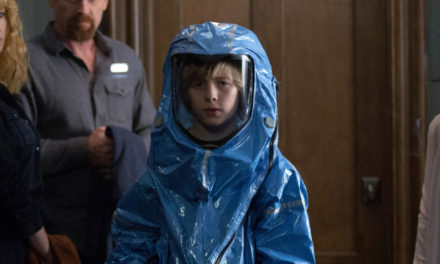SPOILER ALERT
With the release of yet another Stephen King adaptation this year, “It” is by far the most surprising. A new twist on the 1990 cult classic TV mini-series, this movie provided both unexpected twists, new scares, and a new creepy clown to haunt your dreams.
“It”, or likely “It: Part One”, follows the Loser’s Club, which is a group of seven young outcasts who live in the town of Derry, Maine. The group includes asthmatic mommy’s boy Eddie Kaspbrak (Jack Dylan Grazer), gangly Jewish kid Stanley Uris (Wyatt Olef), whose religion puts him in the minority in small-town Maine, and wise-guy comedian Richie Tozier (Finn Wolfhard). Bill Denbrough (Jaeden Lieberher), who is one of the quieter, more thoughtful members of the group. He has a stutter he can’t control, and he’s still reeling from a recent family tragedy that is his six-year-old brother, Georgie (Jackson Robert Scott), who disappeared earlier in the year— one of “It’s” many casualties. The event is dramatized with chilling precision in the movie’s opening sequence. The group’s main nemesis is teenage bad boy Henry Bowers (Nicholas Hamilton), and he’s not the average harmless misguided delinquent you’ve seen or heard of before. At one point he attempts to carve his name into the stomach of another local kid, Ben Hanscom (Jeremy Ray Taylor). Ben is saved by Bill and the others, and him and two more kids end up joining the group: Mike (Chosen Jacobs) who lives on a nearby sheep farm, where his chores include some of the more challenging work farmers need to do. He is also black, and so, like Stan, he’s another Derry, Maine rarity. Beverly (Sophia Lillis), the only girl in the group, is slightly older, and she’s living a secret nightmare life at home. At school, she’s been branded “fast,” though there’s no truth to that accusation. She’s just a smart, considerate girl who tends to keep to herself, and harbors a secret crush on Bill, who she’s liked ever since they were little kids.
The Loser’s Club, however, are about to face their worst nightmare — an ancient, shape-shifting evil that emerges from the sewer every 27 years to prey on the town’s children. Banding together over the course of one horrifying summer, the friends must overcome their own personal fears to battle the murderous, bloodthirsty clown known as Pennywise, who later becomes “It”.
Bill Skarsgard’s portrayal of the character is one for the books. His take on Tim Curry’s original Pennywise is creepier, scarier, and downright horrifying. He doesn’t have the same funny and friendly appearance that the original had, but still has the same sort of approach to befriending (giving red balloons and telling them ‘They’ll Float Too’) and killing children (I.E. ripping a child’s arm off, or eating children alive) as the original.
But like every good adaptation, this film is different from its predecessor in many new ways. One difference in this movie is that the film is set in the summer of 1988 versus the summer of 1960, as to give the new movie a more modern day setting for when “It: Part Two” is released.
Another key difference is the fate of Henry Bowers. Henry Bowers doesn’t die in the sewers of King’s original adaptation. He survives into adulthood, gets blamed for the child murders perpetrated by “It”, and spends the next couple of decades in a psychiatric hospital. His cronies — Victor and Belch, who appear in the film, but who aren’t with him when he goes after the kids at the end, are the ones that die. They get attacked by “It” underground while Henry manages to escape. Henry’s plummet down the well shaft in the new film won’t be his final appearance. We don’t see him actually die, after all; it’s possible he simply landed in some water at the bottom and survived. His character still has a fairly big role to play in the story’s second half, so it would make sense for him to last a little bit longer.
Among other differences to the new film, Mike Hanlon’s backstory is among the changes as well. In the original adaptation, his parents are still very much alive, for one. His dad also has a rivalry with Henry Bowers’ dad, Butch, which is the cause for Henry’s irrational hatred of Mike. The story about the fire, meanwhile, is not featured in the original, as it is mentioned as the reason in the new film as to why Mike lives with his grandfather. In King’s original adaptation, Mike’s father tells him a grim tale about how he escaped an arson attack from white supremacists when he was a younger man in the army (one of many stories in the book used to highlight Derry’s disturbing history and some of “It’s” many attacks).
This film is among many great adaptations to come from Stephen King’s gruesome and terrifying novels, and despite the changes made to the movie, and the unreasonable amount of scares, it helped to make this movie better than most.
Scale of 1-10: 9.2- Highly Recommended
ABOUT THE AUTHOR
Anonymous Student Arthout – 2017 Fall Semester









